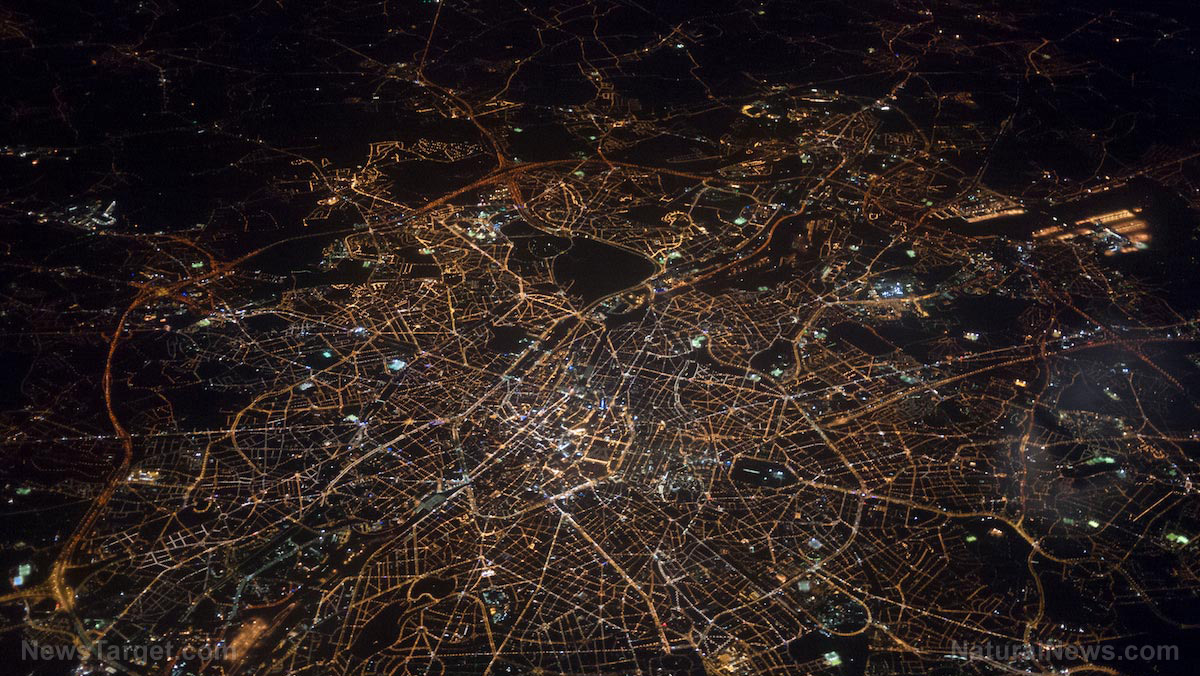Switching off street lights saves energy and helps ecosystems
05/05/2019 / By Edsel Cook

When street lights are turned off for part of the night, they do not just save on the electricity bill. Researchers from the U.K. said that the energy-conserving practice also benefits moths and other nocturnal insects by helping to restore the animals’ original behavior before artificial light pollution intruded upon the night.
In a study published in the journal Ecosphere, the researchers reported that turning off the street lights for a few hours during the evening is enough to let moths regain their bearings. The insects will return to their proper and vital roles as nocturnal pollinators that supplement the work of their daylight counterparts.
Moths are nowhere as glamorous as butterflies or honeybees, but they are very important pollinators that work during the hours when their diurnal equivalents are asleep. They deliver pollen to a lot of plants, including important food crops like peas and soybean.
However, moths and other nocturnal pollinators are easily distracted by artificial lighting. They will abandon fields and hedgerows to fly toward street lights and other sources of light at night. Because they waste time around night-lights, they spend less time feeding on flowers, which reduces the chances of pollination. (Related: Evening bright light exposure can cause your blood sugar levels to spike.)
The bad effects of artificial light pollution can be minimized
However, a research team from Newcastle University said that moths can pollinate flowers in part-night lighting with the same rate of success as when they do so in the complete absence of artificial light. Team supervisor Dr. Darren Evans noted the timeliness of their study on the environmental benefits of part-night lighting, since turning off street lights is an increasingly common cost-cutting practice in the U.K.

“Artificial light at night is an increasingly important driver of global environmental change and sky brightness is increasing by about 6% a year,” Evans said. “Understanding the ecological impact of this artificial light on the ecosystem is vital.”
An increasing number of studies showed that artificial light pollution is connected to negative effects on the health of both humans and wildlife. Because artificial light ruins the natural order of light and dark, it can affect all levels of biological organization, be it on the scale of cells to the level of entire communities and even ecosystems.
Meanwhile, the need to save both energy and money has driven many local authorities in the U.K. to adjust their street lighting policies. They are now dimming the lights or turning them off. They are also replacing older high-pressure sodium (HPS) bulbs with much more efficient light-emitting diodes (LEDs).
Turning off street lights will help nocturnal pollinators
The Newcastle researchers set up different lighting scenarios with flowers located below street lights. The lights were either HPS or LED, and they were either run for the entire night or turned off at midnight.
The pollination success rate of moths in the different lighting and bulb scenarios were evaluated before getting compared to pollination under the cover of natural darkness. The results showed that the practice of full-night lighting produced the biggest amount of ecological disturbance.
Furthermore, the type of bulb did not affect part-night lighting practice. Both LED and HPS lights caused the same level of disruption in the behavior of nocturnal pollinators. Yet their negative effect on pollination success was not significant, even when compared to natural darkness.
“Often, as conservationists, we have to make difficult trade-offs between development and environmental protection,” observed Dr. Callum Macgregor of the University of York. “However, our study suggests that turning off street lights in the middle of the night is a win-win scenario, saving energy and money for local authorities whilst simultaneously helping our nocturnal wildlife.”
Sources include:
ESAJournals.OnlineLibrary.Wiley.com
Submit a correction >>
Tagged Under:
This article may contain statements that reflect the opinion of the author





















